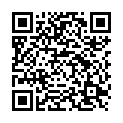|
|
|
| Module code: BAP1102 |
|
|
5S (5 hours per week) |
|
5 |
| Semester: 1 |
| Mandatory course: yes |
Language of instruction:
German |
Assessment:
Course achievement
[updated 01.10.2020]
|
BAP1102 (P311-0113) Health Care, Bachelor, ASPO 01.10.2012
, semester 1, mandatory course
BAP1102 (P311-0113) Health Care, Bachelor, ASPO 01.10.2014
, semester 1, mandatory course
|
75 class hours (= 56.25 clock hours) over a 15-week period.
The total student study time is 150 hours (equivalent to 5 ECTS credits).
There are therefore 93.75 hours available for class preparation and follow-up work and exam preparation.
|
Recommended prerequisites (modules):
None.
|
Recommended as prerequisite for:
BAP1203
BAP1504 Case Studies in Nursing and Care: Critical Reflection and Understanding
BAP2203
BAP2204 Care in Selected Phases of Life
BAP2305
BAP2507 Palliative and Terminal Care
BAP3302
BAP3505 Ethical and Legal Issues in Nursing and Caregiving
BAP5301
BAP5602 Case Management: Organizing and Managing the Provision of Nursing Care
BAP6601 Helping, Showing, Advising: Educational Aspects of Nursing Care I
BAP8202
BAP8303
[updated 14.04.2022]
|
Module coordinator:
Studienleitung |
Lecturer:
Prof. Dr. Dagmar Renaud
Dr. Gerhard Klink
Prof. Dr. Susanne Grundke
[updated 14.04.2022]
|
Learning outcomes:
After successfully completing this module, students will:
- will have acquired application-oriented skills in the area of perception (self-perception and perception by others) as well as in the area of communication and relationship building
- be able to reflect on the importance of perception processes, as well as designing communication and relationships as the central nursing care-relevant basis of person- and situation-related care.
[updated 01.10.2020]
|
Module content:
1. The physiology of perception
2. Social information processing
3. The principles of communication and observation in nursing
[updated 01.10.2020]
|
Teaching methods/Media:
Seminaristic instruction, group discussion/work, partner discussion/work, self-awareness in groups, role-playing
[updated 01.10.2020]
|
Recommended or required reading:
The current module reading list is handed out by the lecturer.
[updated 01.12.2020]
|


